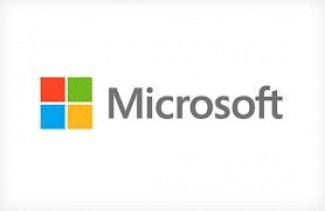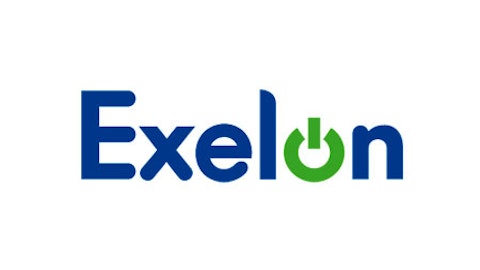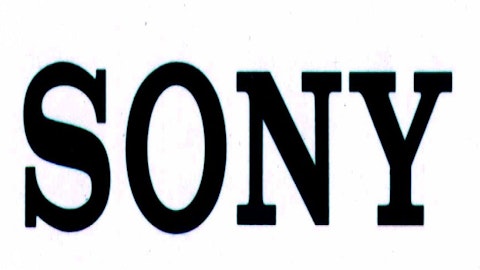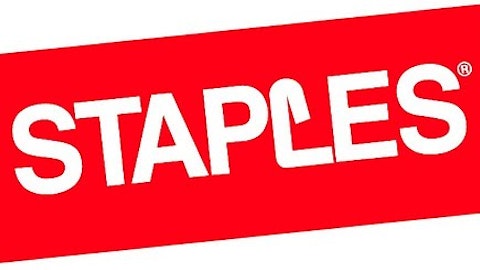Shares of book retailer Barnes & Noble, Inc. (NYSE:BKS) traded higher after Barron’s argued that shares of the company might be worth as much as $38. Yet given ongoing trends in the marketplace, investors shouldn’t bank on it.
Looking at Barron’s bullish argument
Barron’s Barnes & Noble bull case can be found in an article entitled”Beware a Low Bid for Barnes & Noble.”
The gist of Barron’s argument is as follows: Barnes & Noble, Inc. (NYSE:BKS) is really two separate companies–retail stores and a Nook tablet/e-reader business. Each may be worth up to $19 per share. Barnes & Noble retail stores continue to be silent cash generators, while the Nook business is worth something based off of Microsoft Corporation (NASDAQ:MSFT)’s investment last year.

Barnes & Noble retail stores aren’t as valuable as one might imagine
While Barnes & Noble, Inc. (NYSE:BKS) retail outlets continue to generate cash, there’s a reason the company invested in Nook in the first place: bookstores are a dying business.
In its fourth-quarter earnings report released in January, Amazon.com, Inc. (NASDAQ:AMZN) commented on the remarkable divergence seen in physical and digital books. For the month of December, sales of Amazon’s digital books grew 70% from the prior year, while sales of its physical books grew just 5%.
The phenomenon currently being seen in Barnes & Noble retail stores might be one that short selling legend Jim Chanos talked about last year on CNBC.
According to Chanos, when a market for a particular good is dying, the weakest sellers of that good are slowly shaken out of the market — leaving only the best companies. Because these companies now face virtually no competition, they generate immense amounts of cash.
However, this cash generation is illustory: in time, the trends that drove the company’s competitors into bankruptcy will eventually undermine the surviving company. Although Chanos was talking about Coinstar in relation to the now-defunct Blockbuster, his example is applicable to Barnes & Noble, Inc. (NYSE:BKS).
Barnes & Noble’s major competitor, Borders Books, went under in 2011. As it is the only major book retailer left, Barnes & Noble is currently enjoying the benefits of a quasi-monopoly. But in time, it too will go away as digital sales fully eclipse physical sales.
Barnes & Noble could see a repeat of the Best Buy (NYSE:BBY) saga
Last June, Best Buy’s founder and chairman, Richard Schulze, resigned to pursue a takeover of the company. At the time, shares were trading around $20, and there was hope that Schulze could muster a bid in the mid-$20 range.
Unfortunately, as Schulze was attempting to raise the funding to finance his takeover, the share price of Best Buy dropped precipitously. Although shares have seen a resurgence over the last two months, Schulze’s takeover effort seems to have fizzled: now reports indicate he only wants to enlarge his ownership percentage of the company.
In nearly identical fashion, Barnes & Noble founder and Chairman Leonard Riggio is attempting to purchase part of the retailer — just its bookstores — from the company. Barron’s article suggests that investors should accept nothing less than $19 per share. But like the Best Buy situation, Riggio’s offer might never come.
Is the Nook business worth anything?
Barron’s writes that the Nook business is worth “something,” and possibly as much as $19 if investors do the math based on Microsoft Corporation (NASDAQ:MSFT)’s $300 billion investment last year.
Unfortunately, the Nook business might ultimately be worth something closer to “nothing,” particularly if its partnership is severed from the Barnes & Noble retail stores.
The Nook has lagged Amazon.com, Inc. (NASDAQ:AMZN)’s Kindle for years. According to Digital Trends, the Kindle Fire’s market share of the Android tablet space is about 33% — the Nook’s is only 10%. It isn’t hard to see why.
Amazon.com, Inc. (NASDAQ:AMZN) was the first-mover in the digital book space, meaning that consumers might be more comfortable and more familiar with the Kindle name. Further, Amazon.com, Inc. (NASDAQ:AMZN) offers a number of advantages that Nook doesn’t have, such as Amazon Prime with its free shipping, book rentals, and free streaming movies and TV shows.
It’s hard to prove, but the only reason the Nook might have any market share at all could lie with its Barnes & Noble store tie-in. Take a trip to your local Barnes & Noble, and you’ll see Nooks displayed prominently at the front, along with a salesman or two to tell you all about them.
Would Microsoft Corporation (NASDAQ:MSFT) want Nook?
Microsoft’s $300 billion investment seems to have no deeper strategic meaning. The company already makes its own tablets — the Surface and Surface Pro — so it doesn’t need the hardware. The Nook ecosystem, however extensive it is, doesn’t seem to be worthy of $19 per share.
Microsoft Corporation (NASDAQ:MSFT) has never been shy about making big investments. Some of them, like the $6 billion purchase of aQuantive that was written off in 2012, end up worthless. Perhaps its Nook stake was similarly foolish.
What to do with Barnes & Noble stock?
Barnes & Noble is in a dying business, and its Nook digital offshoot doesn’t seem to be going anywhere.
Yet, investors probably shouldn’t short the stock. Like Gamestop, Barnes & Noble has a high short interest (about 35%), meaning that its shares could be expensive to borrow, and the stock might be prone to short squeezes. Still, these temporary rallies could be short-lived.
In the end, the best course for investors could be to stay away.
The article Barron’s Price Target for Barnes & Noble is Insane originally appeared on Fool.com and is written by Salvatore “Sam” Mattera
Copyright © 1995 – 2013 The Motley Fool, LLC. All rights reserved. The Motley Fool has a disclosure policy.





